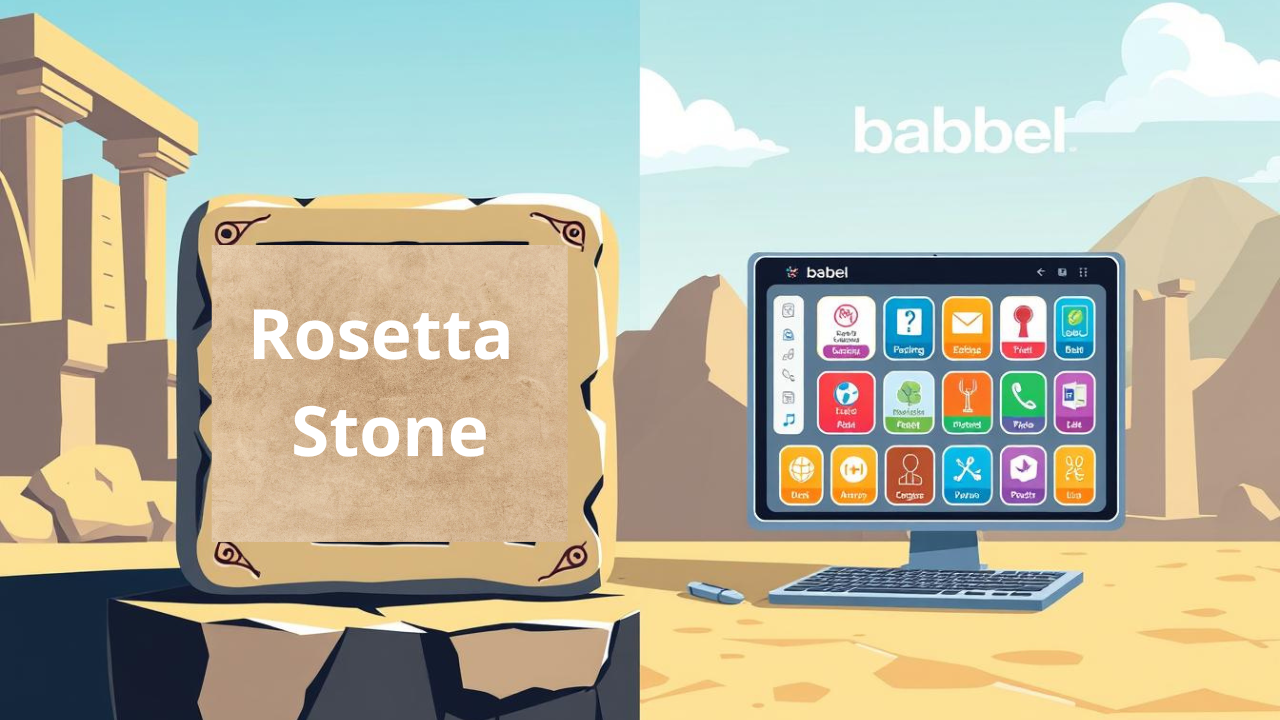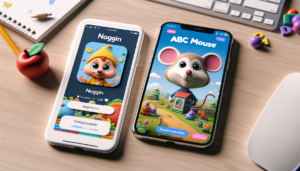Rosetta Stone vs Babbel: 7 Key Factors to Help You Choose the Best Language App
In the world of language learning, Rosetta Stone vs Babbel are at the top. Over 25 million people worldwide have used these apps to learn new languages. The big question is: which app teaches better and helps beginners become fluent?
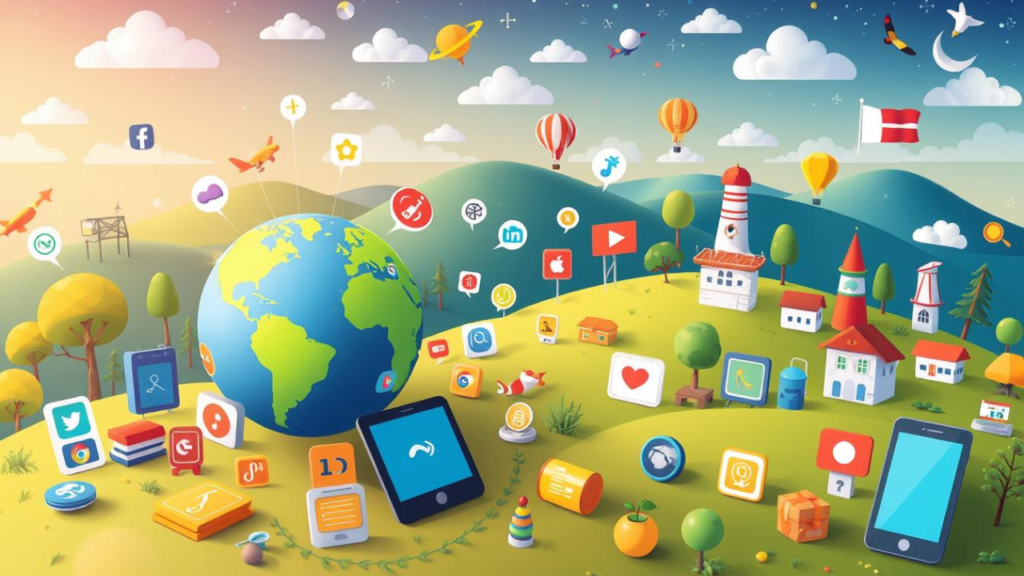
Table of Contents
Key Takeaways
- Rosetta Stone vs Babbel are two of the most popular language learning apps in 2024, with a combined user base of over 25 million people worldwide.
- This article will compare the core teaching methods, pricing, user experience, and learning effectiveness of these two leading language apps.
- The goal is to determine which app, Rosetta Stone and Babbel, provides the better language learning solution for a diverse range of learners and their goals.
- By the end of this analysis, readers will have a clear understanding of the strengths and weaknesses of each app, empowering them to make an informed decision on the right language learning partner.
- The comparison will cover key features, subscription models, available languages, and the overall learning experience to help readers choose the app that best fits their language learning needs.
Understanding Language Learning Apps Evolution
The digital world has changed how we learn languages, thanks to apps like Rosetta stone and Babbel. These apps have made learning grammar rules and getting into the target language easier and more fun.
The Rise of Digital Language Education
Old ways of learning languages didn’t keep people interested. But, mobile apps have brought a new way to learn. They use cool tech to help you learn a language in a way that’s both fun and effective.
How Modern Apps Transform Learning
Apps like stone and babbel have changed language learning. They offer interactive lessons, speech checks, and learning plans that fit you. This makes learning a language more fun and helps you get better faster.
Key Features of Language Learning Platforms
- Immersive, gamified lessons that keep learners motivated and engaged
- Adaptive learning algorithms that adjust the difficulty based on individual progress
- Speech recognition technology that provides immediate feedback on pronunciation
- Extensive lesson libraries covering a wide range of grammar rules and vocabulary
- Personalized learning paths tailored to each user’s needs and preferences
Language learning apps have made learning languages easier, more fun, and effective. As technology keeps getting better, these apps will keep changing language education for the better.
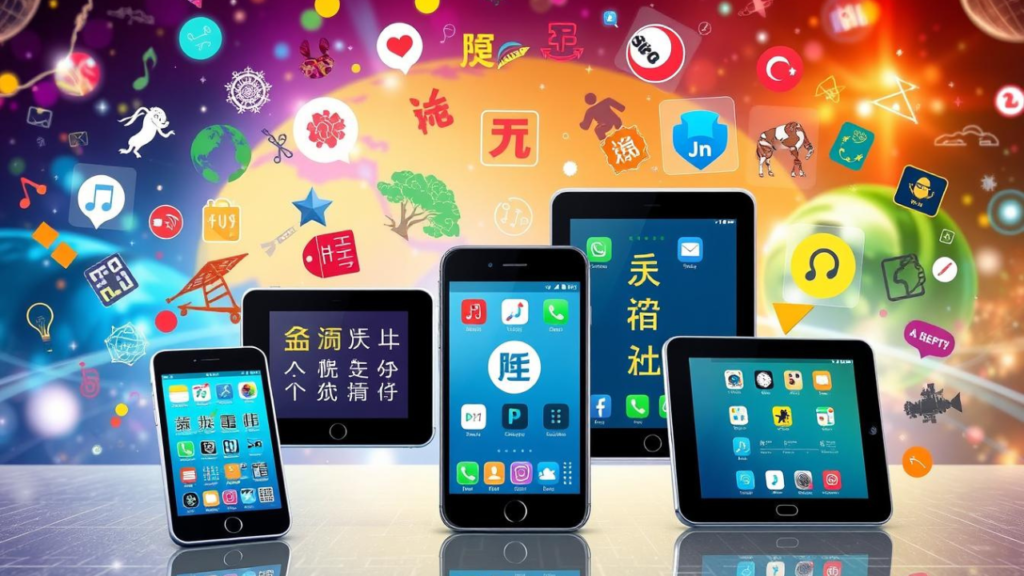
Rosetta Stone and Babbel: Core Teaching Methods Compared
Learning a new language is easier with the right teaching method. Rosetta Stone and Babbel are two top apps with different ways to teach. Let’s look at how they compare.
Immersion-Based Learning
Rosetta Stone uses an immersive style. It teaches the language without translations or grammar rules. This method is like how kids learn their first language, through constant exposure.
Structured Grammar Instruction
Babbel focuses on real-life grammar. It breaks down language into easy lessons. This helps learners who like a structured way of learning.
Vocabulary Building Strategies
Both apps have good ways to teach new words. Rosetta Stone uses images and situations to teach words. Babbel teaches through themed lessons and exercises.
Choosing between Rosetta Stone and Babbel depends on what you prefer. If you like a natural, immersive learning, Rosetta Stone might be better. Babbel is great for those who like a structured, grammar-focused approach.
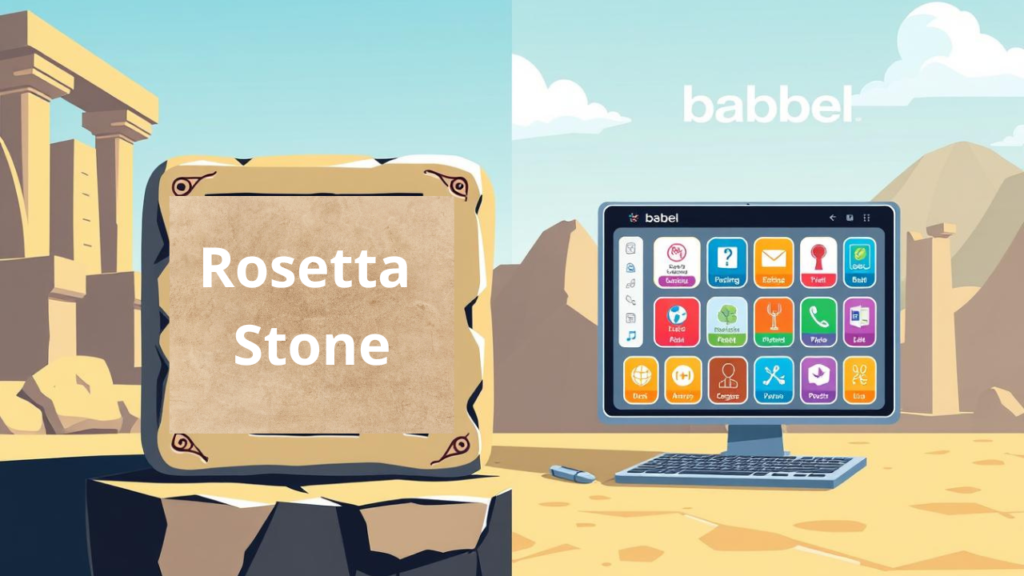
Rosetta Stone vs Babbel: A Closer Look at Their Key Features
When comparing Rosetta Stone vs Babbel, both stand out as top-tier language learning programs, each with its own unique approach and features designed to cater to different learner preferences.
Rosetta Stone, on the other hand, adopts a fully immersive teaching method. Learners are exposed to the target language through visuals and context without relying on translations or explicit grammar explanations. This method simulates how native speakers acquire language, making it ideal for those who prefer a natural and intuitive learning process. Its voice recognition feature, powered by advanced AI, provides real-time feedback to improve pronunciation accuracy, ensuring a high quality learning experience.
Babbel, on the other hand, focuses on practical, structured lessons that emphasize real-life conversations and grammar. Each lesson is designed to gradually build language skills using targeted exercises such as fill in the blanks tasks, which reinforce vocabulary and sentence structure. Babbel also includes interactive dialogue exercises and cultural insights, making it ideal for learners who appreciate step-by-step guidance.
Both platforms excel in specific areas, but choosing between Babbel vs Rosetta Stone depends on your learning style. If you value an immersive, context-based experience, Rosetta Stone may be your go-to choice. However, if you prefer a structured, grammar-oriented approach with practical application, Babbel could be the better fit.
By understanding their distinct teaching methods and features, learners can make an informed decision and embark on their language learning journey with the app that aligns best with their goals.
Pricing and Value Proposition Analysis
Language learning apps like Rosetta Stone vs Babbel focus on pricing and value. They offer various subscription plans and courses. Each has its own benefits.
Subscription Models and Costs
Rosetta Stone starts at $11.99 a month for a year. Babbel is more flexible, with monthly plans starting at $12.95. You can also buy a lifetime plan for $299.
Available Languages and Course Options
- Rosetta Stone teaches over 30 languages, including Spanish, French, and Italian. They also offer Arabic and Chinese.
- Babbel focuses on 14 languages, like English, Spanish, and French. They aim for the most spoken languages worldwide.
Premium Features Breakdown
Rosetta Stone vs Babbel both have premium features. Rosetta Stone uses speech recognition and mobile apps for learning on the go. Babbel focuses on conversations and personalized feedback to improve your skills.
Choosing between Rosetta Stone vs Babbel depends on your needs and budget. Both offer great language learning tools. But, the differences in pricing, languages, and features might influence your decision.
Learning Experience and User Interface
Language learning apps focus a lot on how easy they are to use and how fun they are. Let’s see how Rosetta Stone vs Babbel compare in these areas.
Both apps have simple and easy-to-use interfaces. This makes it easy for everyone to navigate, no matter their age or tech skills. But, Rosetta Stone stands out by teaching through immersion. It doesn’t use translation or explain grammar rules. This helps learners get better at sentence structure and improve their reading, writing, listening, and speaking skills.
Babbel, however, takes a more structured approach. It organizes lessons by topic and difficulty. This might be better for those who like learning step by step.
| Feature | Rosetta Stone | Babbel |
|---|---|---|
| Lesson Structure | Immersion-based, no translation or grammar rules | Structured by topic and difficulty level |
| Skill Focus | Balanced approach to reading, writing, listening, and speaking | Emphasis on listening and speaking |
| User Engagement | Highly interactive, with speech recognition and visual cues | Interactive exercises and gamification elements |
Choosing between Rosetta Stone vs Babbel depends on what you prefer and what skills you want to improve. Both apps are great for boosting your sentence structure, reading, writing, listening, and speaking skills.
Progress Tracking and Learning Effectiveness
Mastering a new language requires tracking progress and measuring learning. Babbel and Rosetta Stone help by offering tools to stay motivated. They focus on your language learning journey.
Assessment Methods
Babbel uses a detailed assessment system. It checks vocabulary, grammar, pronunciation, and comprehension. The app uses quizzes, speech recognition, and learning algorithms for feedback and lesson adjustments.
Rosetta Stone takes an immersive approach. It uses contextual learning and visual cues. It doesn’t have traditional assessments but tracks progress through complex conversations.
Skill Development Measurement
Both Babbel and Rosetta Stone provide detailed progress reports. Babbel has a “Progress Dashboard” for personalized tracking. Rosetta Stone celebrates milestones to boost motivation.
User Success Metrics
The success of language learning apps is in achieving user goals. Rosetta Stone vs Babbel are known for improving language skills. Studies show they boost vocabulary, listening, and overall proficiency.
These language learning apps offer personalized assessments and celebrate success. They help users tailor their learning and reach their language goals.
Refer post: Pimsleur vs Rosetta Stone: Which Language App Wins?
Conclusion
In the battle between Rosetta Stone vs Babbel, each app has its own strengths and weaknesses. Rosetta Stone is great for those who learn best by seeing and hearing. It helps learners get good at speaking and understanding naturally.
Babbel, however, is perfect for those who like to learn through grammar and structure. It’s great for learners who want to know the rules of a language before they start talking.
Choosing between Rosetta Stone vs Babbel depends on what you want to achieve and how you like to learn. If you want to speak fluently fast, Rosetta Stone might be for you. But if you prefer to learn the grammar first, Babbel could be the better choice.
Both apps are designed to make learning a new language fun and effective. So, whether you pick Rosetta Stone or Babbel, you’ll be on your way to mastering a new language. This opens up a whole new world of possibilities for you.
FAQ
How do Rosetta Stone and Babbel compare in their teaching methods?
Rosetta Stone uses a fully immersive method. It teaches language through visuals and context, without translation or grammar rules. Babbel mixes immersion with focused grammar and vocabulary exercises. This gives a more structured learning path.
Which app offers a better value proposition for language learners?
Babbel is more affordable with a wide range of languages and courses. Rosetta Stone costs more upfront but offers advanced features like speech recognition. It also provides personalized learning paths.
How do the user interfaces and learning experiences differ between Babbel vs Rosetta Stone?
Rosetta Stone has a sleek, easy-to-use interface that focuses on visual learning. Babbel’s design is structured, with clear lessons and interactive activities. Both aim to keep users engaged, but in different ways.
How effective are Babbel vs Rosetta Stone in developing practical language skills?
Rosetta Stone is great for starting vocabulary and conversations with its immersive method. However, it may not focus enough on grammar. Babbel is better at teaching real-life dialogue and grammar. It helps learners improve in reading, writing, listening, and speaking.
How do the two apps track user progress and measure learning effectiveness?
Rosetta Stone uses adaptive learning to tailor the experience. But, its assessment methods might not be clear. Babbel offers detailed progress tracking, including skill assessments and performance metrics. This lets learners see how they’re improving.

